The Write Stuff
In light of legal fiction’s widespread reach, its ability to shape public understanding about the law, and its potential to inspire generations to pursue a legal career—who better to author it than actual lawyers?
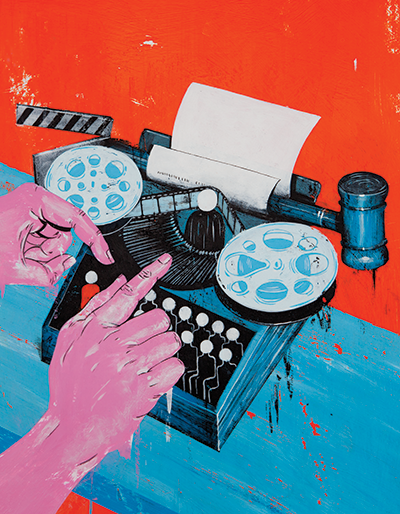
Legal fiction and fact are almost inseparable in American life, where literary characters such as Atticus Finch have become cultural icons, while heroes like Perry Mason have reliably glued generations of families to their TV sets. Law shows, especially those in the crime genre, regularly appear in the top 10 Nielsen television ratings. And legal novels predictably populate the top 20 list in The New York Times Book Review.
Thus, legal fiction has contributed significantly to the general public’s perceptions about the legal system. Ask any non-lawyer whether she knows about Miranda warnings and chances are she can recite them verbatim based on years of watching Dragnet or Law & Order. John Grisham’s best-selling legal thriller, The Pelican Brief, informed millions of readers (and moviegoers) about the potential impact of the Supreme Court on the survival of an endangered species habitat. Should a woman who suffers from obesity be allowed to sue fast-food companies? Viewers can form an opinion based on the opposing legal arguments and judge’s ruling that aired on a recent episode of Harry’s Law, David E. Kelley’s latest series.
In light of legal fiction’s widespread reach, its ability to shape public understanding about the law, and its potential to inspire generations to pursue a legal career—who better to author it than actual lawyers? While many JDs may fantasize about creative writing, few have the “X factor”—that additional ingredient required to leverage their professional training into marketable entertainment. But a surprising number of Stanford Law grads have bypassed a traditional law firm career for creative writing—and have succeeded. They form a remarkable group of storytellers with the likes of television hit creator and producer Robert Cochran ’74 (BA ’71), screenplay writer Marshall Goldberg ’71, and novelist Meg Gardiner ’82 (BA ’79) —and far too many more to include in this one article—each one with a story well worth telling.
Josh Berman
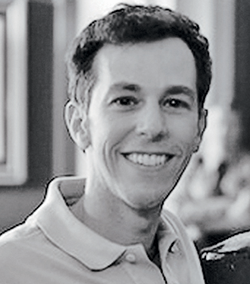
Josh Berman, JD/MBA ’96, always loved writing, but just in case he couldn’t make it as a writer, he had a really terrific backup plan. First, he went to Princeton and studied public policy. Then he spent time in Australia as a Fulbright scholar. And then he came to Stanford and received his JD/MBA.
Through it all, he always was writing. “Even at Princeton, I went through the creative writing program, and while I was getting my JD/MBA at Stanford, I wrote scripts. I had zero social life because every night I was at home in my dorm or my apartment writing.”
Berman actually sold his first script while he was at Stanford. After that, he says, “I was kind of bit by the bug.” He knew he wanted to finish his degrees, but “just as a safety net and so that my parents wouldn’t kill me.”
After Stanford, he got a “fantastic job” as a creative executive at NBC. “I met amazing people and discussed great ideas all day long,” he says. The problem was that it didn’t leave much time for writing.
Berman realized that, even though he loved his job, “the pull to be a writer was too strong.” So he left NBC and within two years he was hired as a writer on CSI.
He says his legal training gave him a definite edge. “Law school teaches you how to think uber-logically. So, on a show like CSI, where everything is intricate and interrelated and logic is so important, I had a real leg up in the writers’ room because my mind already had been trained to think that way.”
In fact, Berman says, he used to joke that writing a CSI script “was not that much different from writing a legal brief because of all the theories and the arguments and the need to connect the dots.”
He also had another advantage. As the only lawyer on the CSI staff, he says, “I was always asked to write a couple of episodes every season that were completely law-based or set in a courtroom. Being a lawyer gave me a different perspective from the other writers in the room.”
Then he got a crazy idea for a new show, Drop Dead Diva, the third season of which will air on Lifetime in June. As described by Berman, Drop Dead Diva “is about a skinny, vapid model named Deb who dies and whose spirit goes back into the body of a plus-sized lawyer named Jane.”
Jane, it turns out, is based on Berman’s “pleasantly plump, 4’11” grandmother named Deb,” who, he says, “carried herself like a supermodel.” She also was a Holocaust survivor who “thought that if she could survive that, she could survive anything and no one was going to tell her what to do or how to behave based on her looks.”
Berman’s grandmother inspired him. “She made me believe I could do anything. And I wanted to tell her story but make it dynamic and contemporary.”
Jane is the perfect vehicle to achieve Berman’s goal. In addition to being smart, funny, and irrepressible, Jane is an inspirational lawyer. Her prodigious legal skills, which she acquired at Stanford Law School (careful viewers may notice the diploma in her office), are the source of innumerable creative solutions to seemingly unsolvable legal problems.
In fact, Berman says, “I used to keep cool ideas for new shows in the back of my law school notebooks—this was before people had laptops in the classroom. I’ve actually gone back to those pages when I’m looking for stories for Drop Dead Diva.”
And, as a bit of advice for law students who are aspiring writers, Berman observes, “Law school is a fertile ground for ideas and talking to brilliant people. You never know what will come out of it. What sounds like a boring case could later become a real gem of an idea.”
Alafair Burke
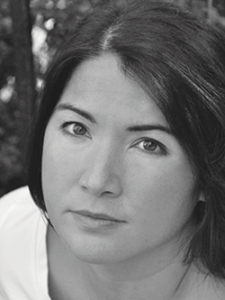
Alafair Burke ’94 describes her life as “all crime, all the time” even from her early childhood. Growing up in the 1970s, Burke spent her formative years in Wichita, Kan., where a serial killer known as BTK (“bind, torture, kill”) terrorized women and children in Burke’s own neighborhood.
“In a world where the killer could be anyone and where an arrest appeared hopeless, I found comfort in crime fiction where, unlike in Wichita, smart sleuthing always paid off and order was always restored,” says Burke. She also read obsessively about the unsolved murders, thinking that she could break the case if she only had access to all of the evidence. (The killer was not arrested for another 30 years.)
Despite her early exposure to crime fiction (and crime) and the influence of her parents—her mother, Pearl, was a librarian and her father, James Lee, was an English professor and is still a well-known novelist—Burke never considered writing fiction, even as a hobby. Instead, she went to law school, thinking she would become a civil rights lawyer, a prosecutor (like her brother), or an entertainment lawyer—her first choice (she admits to a fascination with celebrities).
Her interest in crime won out, and Burke ended up in the Portland, Oregon, District Attorney’s Office, where the seed for her first book—Judgment Calls—was firmly planted. Because of her writing skills, honed during her clerkship with Judge Betty Binns Fletcher (BA ’43) of the Ninth Circuit, Burke was asked to work on a complicated brief involving a man’s confession to a murder for which two individuals had been previously convicted. Once the police corroborated the confession, the arduous process of undoing the prior convictions began, during which, she says, “my imagination was running wild—what if all three had known each other and there was a connection between them and the victim?”
Burke started writing her first novel while practicing law, but it wasn’t until she joined the faculty of Hofstra Law School, where she is now a tenured professor of criminal law and procedure, that she was able to finish it.
In addition to an array of scholarly articles, Burke has published a novel every year since 2003, beginning with three legal thrillers based on the character Samantha Kincaid, whom she describes as “a feisty Portland prosecutor.” Following the Kincaid series, Burke introduced readers to NYPD Detective Ellie Hatcher, who grew up in Wichita and whose detective father spent 30 years hunting a serial killer.
Acknowledging the echoes of her own life in her novels, Burke observes that most writers can usually pull off one book with one main character who closely resembles themselves. “But you can’t do that over and over again,” she says. And while she feels that her interest in and familiarity with criminal law and procedure distinguish her as an author, she is now much more focused on character development.
Burke also emphasizes the importance of storytelling, a skill she attributes directly to her experience as a trial lawyer and one that she consistently relies upon in her writing. “A good trial lawyer knows how to take the facts and organize them into a coherent story that draws in the jury. She is adept at deciding where to mention a particular ‘clue’ and when to foreshadow an upcoming development, all leading to a satisfying resolution of the case.”
And that’s what she thinks crime fiction readers ultimately want. “People are curious about terrible things but they like the implicit promise the author makes that there will be order in the end.”
Burke’s next novel, Long Gone, will be released in June.
Paul Goldstein
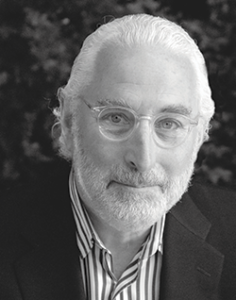
Paul Goldstein, Stella W. and Ira S. Lillick Professor of Law, also represents high-profile clients as a part-time practicing attorney. And besides being one of the nation’s leading intellectual property scholars, he recently added “popular author” to his list of accomplishments.
Goldstein’s interest in writing dates from junior high school and continued through college. “I wrote short fiction and poetry and even had the grandiosity to start a novel when I was thirteen years old,” he says.
Although he thought about becoming a writer, he never seriously considered it as a profession, acknowledging that “my passion for writing wasn’t sufficient to overcome the attractions of a more traditional career path.”
Goldstein attended law school and thought reading cases was great—particularly the stories. During his first year, he was captivated by the human drama, especially in torts. “The narratives fascinated me and I found myself wondering about the stories behind the cases and what happened next. Why was someone carrying so potent a package of fireworks at the railroad station? And whatever happened to Mrs. Palsgraf?”
But his true passion was copyright, and he concentrated on his scholarly pursuits.
Then, in the 1990s, after decades of producing highly acclaimed scholarship, Goldstein, who describes himself as an omnivorous fiction reader, discovered a renewed interest in writing fiction. It started with his desire to explain copyright law to a lay audience in his non-fiction book Copyright’s Highway.
When a review described his narrative of a Supreme Court case as reading “like a legal thriller,” Goldstein says that “got the wheels turning.”
A few years later, Goldstein was helping MGM/United Artists to protect the studio’s James Bond franchise. The outcome turned on a highly technical copyright issue and triggered a succession of “what ifs.” (What if his client didn’t really own the copyright and what if the real owner mysteriously disappeared?)
To answer the questions, Goldstein created his protagonist, the alcoholic IP lawyer Michael Seeley, the unlikely hero of his first legal thriller, Errors and Omissions. He discovers that his employer, the fictional United Pictures, doesn’t own the rights to its blockbuster hit Spykiller—and he then proceeds to unravel the copyright mystery that underlies a series of murders and other misbehavior.
Goldstein also put Seeley at the center of a patent infringement trial involving an AIDS vaccine in A Patent Lie, yet another legal thriller.
Goldstein credits his success as a novelist in part to his legal training. “One of the great values that a lawyer can bring to fiction writing is judgment,” he says. “I exercise the same part of my brain when writing fiction as I do when practicing law.” He explains that just as a lawyer uses judgment to decide how to shape a credible argument, a writer—at least a good one—will use that kind of judgment to decide whether a narrative is consistent with a book’s tone and the character’s development. Analytically, the process is remarkably similar.
Goldstein’s third novel in the Michael Seeley series, Havana Rum, is due out later this year.
Jonathan Lisco
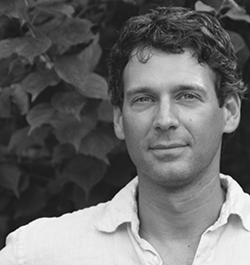
Jonathan Lisco ’95 grew up thinking law was in his blood. “My dad’s 82 and still kicking butt in the courtroom,” he says. “My grandfather was a divorce court judge, my sister’s a public defender.” But as it turns out, Lisco had other things in his blood, too, which would complicate matters.
While growing up in Lincolnwood, Ill., Lisco and his mom, a retired English teacher, would do parallel reading. “She had to make me do it at first,” he says. “We’d sit silently side-by-side and read a Charles Dickens novel—I’d have to skip over the big words—and when we got to the end of a chapter, my mom would quiz me about it, forcing me to a deeper level of understanding.”
This exercise, which he eventually came to relish, instilled in him a profound love of and appreciation for reading and writing. “I responded viscerally to literature,” he says. “And I started to deify writers who could make me feel that way.”
Lisco also enjoyed performing, and when he attended Harvard University as an East Asian Languages major, he co-wrote and starred in the Hasty Pudding Show. When the show won a national award, he even tried writing a screenplay when approached by a small studio. “It flopped,” he says. “They said it was way too artsy.”
When graduation came around, Lisco had no clear plan for the future. “I started making noises about wanting to be a writer, but my family, especially my mom who was responsible for my love of writing, said I needed to get a ‘real job.’ Talk about a bait and switch!” he says jokingly. “Apparently an appreciation for literature and the arts was an accessory that I was supposed to trot out at cocktail parties when I became a doctor, or a lawyer, or a successful businessman. Deep down my parents may have wanted a different path for me, but they were just too pragmatic to show it.”
Lisco went off to work in China, maybe to escape, or at least to think things over. Meanwhile, his college girlfriend had been accepted to Stanford Law School. He applied from overseas and got in. “I think I went to law school because it was a short-term fix to extricate myself from my family’s disapproval. And I followed a girl,” he says.
Lisco says he “kinda liked law school—well, at least the first two weeks of every class.” This was when the professor typically explored the drama of the human condition that lay behind the legal subject. “What is a promise? And what happens when that promise is broken? Those were the kinds of questions that interested me,” he says. “But then we’d start in on the Uniform Commercial Code, and my enthusiasm would, shall we say, begin to wane a bit.”
Despite growing doubts about becoming a lawyer, Lisco was “not a quitter.” He returned to law school after his 1L summer—which he spent house-sitting and writing short stories—and put in the necessary effort to graduate and pass the New York bar exam.
He also married his college girlfriend—Cara Cherry Lisco ’95—and the two moved to New York City, where she went to work at a small public interest firm and he joined the mergers and acquisitions group at a big law firm, Shearman & Sterling. He lasted six and a half months. “Not to be operatic, but I really did feel as if my soul was out of its socket,” he says. “And lucky for me, too, because that helped me make the leap.”
At his wife’s urging, Lisco quit and immediately started waiting tables and writing a play. While it took two years to complete, and was never performed, a reading of it got some attention and he wound up selling a movie pitch to Robert De Niro’s production company, Tribeca Productions. At the same time, the play attracted the attention of a friend’s literary manager, who “hip-pocketed” Lisco as a client. And that’s how Lisco’s play eventually ended up on the desk of Steven Bochco.
By that time, the Liscos had moved to San Francisco because Cara had changed jobs. Bochco liked the play so much, he flew Lisco to Los Angeles and offered him a job on the spot writing for his famed television series, NYPD Blue. Since NYPD Blue, Lisco hasn’t stopped working in Hollywood. He’s written for a number of successful series and created two of his own, including K-Ville, about the New Orleans Police Department in the wake of Hurricane Katrina, which ran for half a season but then fell prey to the 2007 writers’ strike. Currently, Lisco is a writer and one of the executive producers of Southland, a hard-hitting crime drama that has just been renewed for its fourth season.
Lisco says that while being a lawyer is useful in his profession, he also has to get beyond his training. When he started writing television, he was “way too cerebral” and had to learn to go for “the emotional jugular.” He explains that “although lawyers are trained to think logically and elegantly— and many of them are clever—that’s simply not sufficient to be a great storyteller. You’ve got to learn to get over yourself, even your love of words, and reach people on a gut level.”
Nonetheless, Lisco is grateful for his legal training and the authority it gives him in the writers’ room.
“Legal stuff is always gumming up the works—and not just on cop and lawyer shows. Questions like, hey, can the police search our guy’s gym locker based on that alone? Or, can they strip-search a minor in the principal’s office of that charter school? If you’re not careful, it can stop time, sort of paralyze you. And in TV, you can’t afford to lose the time and momentum.”
Given Lisco’s background, that’s when all eyes turn to him. So, he explains with a twinkle, he has established a simple rule to keep things flowing:
“If I don’t know the answer, which is typical, but I have an instinct about it, I’ll just lie and give an authoritative answer, so we can move on. Then later, if I turn out to be wrong, we can adjust this minor detail accordingly, when it no longer seems that crucial because now we’ve got the meat of the story. Turns out my legal education—or at least the perception of my legal ‘cred’—is a lot like fairy dust. I sprinkle a little around and, voilà, problems tend to disappear.”
Michele Martinez Campbell

Michele Martinez Campbell ’89 has dreams. One of them led her to Stanford Law School: “I was obsessed with government and politics and always dreamed of being a lawyer,” she says.
Yet this result was by no means guaranteed. Martinez Campbell grew up in a tough New Haven, Conn., neighborhood while her father, who emigrated from Puerto Rico as a child, and her mother, who was the daughter of Russian Jewish immigrants, struggled to support the family.
With the encouragement of her parents, Martinez Campbell pursued her version of the “American dream”—attending Harvard University and then Stanford Law and ultimately getting what she describes as her “dream job”—working for the government as an assistant U.S. attorney.
For eight years she served as a prosecutor in the Eastern District of New York, an area that includes some of the most crime-ridden neighborhoods of Brooklyn and Queens. Martinez Campbell, who specialized in narcotics, dealt with serious criminals. “We’re talking about Mexican cocaine cartels, Burmese warlords who controlled hundreds of kilos of heroin, and local kingpins operating massive crack and heroin supermarkets on the streets 24/7,” she says.
While she relished her work, Martinez Campbell experienced a crisis after the birth of her two children. “It became increasingly difficult to sustain the life of a full-time trial lawyer while raising young children. But I was angst-ridden about giving up my legal career without a solid plan,” she says.
And then Martinez Campbell had an actual dream: “It was about a fire in a townhouse that killed a handsome silver-haired lawyer, who may have been leading a double life.” The next morning, she wrote it down.
An outline and a few pages later, Martinez Campbell summoned the courage to change directions. Although she had studied journalism and had written some fiction, she never had aspired to be a professional writer. But that is exactly what she became.
After leaving the U.S. Attorney’s Office, Martinez Campbell enrolled in a continuing studies course at NYU, where she had the invaluable opportunity to work one-on-one with a published author. She also joined Mystery Writers of America, where at group-sponsored events she networked with other authors and eventually met her agent.
Most importantly, says Martinez Campbell, she logged many long hours at the library. “Being a lawyer, I had to write a lot, but the most important skill I brought with me to fiction writing was my work ethic and a respect for deadlines. I also had credibility from years of being a prosecutor, but the critical ingredient was my stick-to-itiveness.”
Putting in the time paid off. Martinez Campbell published four legal thrillers—one a year from 2005 to 2008. The opening scene of her debut novel, Most Wanted, features her fateful dream and introduces Melanie Vargas, the heroine of the series, a Latina federal prosecutor who, like the author, attempts to juggle motherhood with the demands of her career.
However, as much as she enjoys writing legal fiction, Martinez Campbell has taken a hiatus to pursue a different but related professional path. When she and her husband decided to move their family out of the city a few years ago, Martinez Campbell accepted an adjunct position teaching criminal law and procedure at Vermont Law School. That position subsequently evolved into tenure-track.
Though Martinez Campbell has in mind the outlines of another possible novel, for now she is focusing on her new career in academia. And her scholarly writing is “extremely time-consuming.” She notes, “It’s a lot more rigorous than writing fiction. You can’t just make things up!” SL
